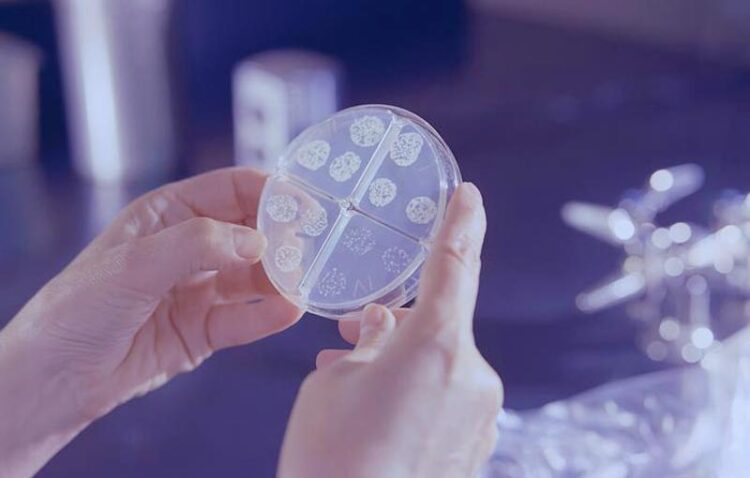TB blood test which could detect millions of silent spreaders

Discovery of biomarkers found in highly-infectious patients raises hopes of new TB test
Credit: University of Southampton
Scientists have taken a major step towards developing a blood test that could identify millions of people who spread tuberculosis unknowingly.
A breakthrough study has discovered a group of biological markers that are found in high levels among infectious patients.
The researchers hope the findings will pave the way for a simple test that can diagnose and stop the spread of the estimated 10 million cases annually.
Tuberculosis, or TB, is the world’s deadliest infectious disease and kills more than one million people each year, according to World Health Organisation data.
Scientists from the University of Southampton, working with experts worldwide, carried out the most detailed analysis ever undertaken of blood markers for the bacterial infection.
The study, published in the Journal of Clinical Investigation Insight, used a novel technique that identified a set of six proteins that are highly accurate in pinpointing TB.
Lead author Dr Hannah Schiff, a respiratory expert at Southampton, said as many as three million cases were missed last year, mostly in developing countries.
She added: “TB remains a global catastrophe because our efforts to control the spread are hindered by inadequate testing, which is slow and reliant on specialist equipment and labs.
“A third of people who get infected go undiagnosed and remain infectious.
“In our study, we combined a new measurement technique with deep mathematical analysis to identify these six new markers of TB disease.
“It could lead to a transformative alternative to diagnosing the condition – a simple test that detects proteins in the bloodstream whose levels differ between people with TB, healthy individuals, and those suffering from other respiratory illnesses.”
TB spreads through inhaling tiny droplets from coughs or sneezes of infected people – and, while it mostly affects the lungs, it can devastate any part of the body.
Cases in the UK increased to around 5,000 last year, and are expected to continue rising in 2024, according to the UK Health Security Agency.
The University of Southampton study was undertaken with experts from the University of Cape Town in South Africa and Cayetano Heredia University in Lima, Peru.
It was published for world TB day, on 24 March, which is held to raise awareness and to step up efforts to end the global Tuberculosis pandemic.
The study was funded by the UK Medical Research Council and the National Institute for Health and Care Research (NIHR) Southampton Biomedical Research Centre.
Academics leading the investigation studied proteins found in the blood of people with active TB in Africa and South America.
They compared the biomarkers to those found in healthy people and patients with lung infections, identifying 118 proteins that differed significantly between the groups.
The experts then narrowed these down to the six proteins that, they said, can be used to distinguish contagious patients with TB from people in good health or with lung conditions.
The findings are a roadmap to developing a TB test that is as simple as the lateral flows used during Covid, said study co-director Dr Diana Garay-Baquero, also from Southampton.
She added: “The new markers we discovered are truly exciting, but the important work now is to develop these into tests that can be used for the millions of people who are transmitting TB without knowing it.
“As the Covid-19 pandemic confirmed, we ignore highly infectious airborne diseases at our peril.”
Read the study at https://doi.org/10.1172/jci.insight.173273.
Journal: Journal of Clinical Investigation
DOI: 10.1172/jci.insight.173273
Method of Research: Randomized controlled/clinical trial
Subject of Research: People
Article Title: Integrated plasma proteomics identifies tuberculosis-specific diagnostic biomarkers
Article Publication Date: 22-Mar-2024
Media Contact
James Haigh
University of Southampton
j.haigh@soton.ac.uk
Office: 23805 99192
All latest news from the category: Life Sciences and Chemistry
Articles and reports from the Life Sciences and chemistry area deal with applied and basic research into modern biology, chemistry and human medicine.
Valuable information can be found on a range of life sciences fields including bacteriology, biochemistry, bionics, bioinformatics, biophysics, biotechnology, genetics, geobotany, human biology, marine biology, microbiology, molecular biology, cellular biology, zoology, bioinorganic chemistry, microchemistry and environmental chemistry.
Newest articles
Faster, more energy-efficient way to manufacture an industrially important chemical
Zirconium combined with silicon nitride enhances the conversion of propane — present in natural gas — needed to create in-demand plastic, polypropylene. Polypropylene is a common type of plastic found…

Energy planning in Ghana as a role model for the world
Improving the resilience of energy systems in the Global South. What criteria should we use to better plan for resilient energy systems? How do socio-economic, technical and climate change related…

Artificial blood vessels could improve heart bypass outcomes
Artificial blood vessels could improve heart bypass outcomes. 3D-printed blood vessels, which closely mimic the properties of human veins, could transform the treatment of cardiovascular diseases. Strong, flexible, gel-like tubes…




















